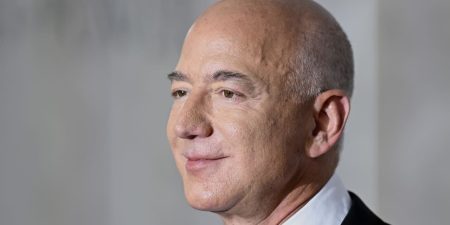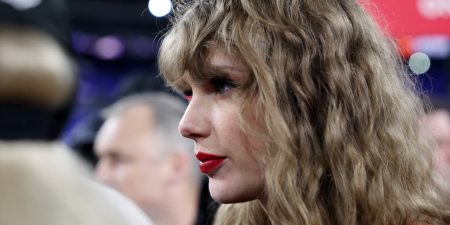Here’s some breaking news: The traditional car business isn’t dead. The evidence?
Toyota Motor,
which this past week reported an operating profit of $11.3 billion for its fiscal third quarter, miles ahead of Wall Street expectations of $9.2 billion. The world’s largest car maker saw its U.S.-listed shares surge 10.8% to $224.46 for the week, a record high.
Toyota’s vehicle mix has changed more slowly than at U.S. rivals
Ford Motor
and
General Motors.
Toyota sees wholesale unit sales in the fiscal year of some 9.5 million, slightly less than projected, with electrified models—mostly plug-in hybrids—of 3.9 million. The company expects to sell about 120,000 battery plug-ins, up from 38,000 last year; that’s only 1% of total volume. But Toyota shares are up over 55% in the past year, and trade around 10 times 2024 calendar year earnings.
Ford and GM investors haven’t had as easy a ride. Ford shares are flat over the past 12 months while GM’s fell 7%, despite U.S. car sales rising 11% in 2023. Ford trades for 6.9 times estimated 2024 earnings, GM at 4.5 times. Both have raced toward battery EVs, and away from internal-combustion vehicles, hybrid or conventional.
GM’s 2024 guidance was well above the Street: $13 billion in 2024 operating profit, compared with a consensus of $11 billion. Ford expects to earn about $11 billion in 2024, up from $10.4 billion in 2023, above the consensus. Investors should take comfort in Toyota’s success. It can be done.
Write to Al Root at [email protected]
Last Week
Markets
Congressional action on the border and Ukraine and Israel aid collapsed after Republicans withdrew support from their own bills. China’s deflation accelerated as state funds began buying stocks. U.S. indexes opened mixed, then rose on earnings. The
S&P 500
broke 5000 for the first time; Japan’s
Nikkei
hit a 34-year high. On the week, the
Dow industrials
were flat, the S&P rose 1.4%, and the Nasdaq Composite was up 2.3%.
Companies
Shares of New York Community Bancorp plunged again as Moody’s cut its debt to junk. A Boeing subcontractor found improperly drilled holes in new MAX jets, and a report said the door blown off on Jan. 5 was missing four bolts. Fox, Walt Disney’s ESPN, and Warner Bros. Discovery agreed to merge sports streaming services. Disney announced a share buyback, a bigger payout, and a $1.5 billion stake in game maker Epic. Palantir credited AI for its earnings beat. Snap beat, but its outlook was gloomy.
Ford Motor
beat—and was upbeat.
Deals
The Dutch-based parent of Russia’s most popular search engine, Yandex, sold for $5.2 billion, the largest sale of Russian assets since the Ukraine war began…Novo Nordisk’s controlling shareholder, Novo Holdings, agreed to buy drug manufacturer Catalent for $16.5 billion. Novo Holdings will sell three Catalent manufacturing sites to Novo Nordisk, as it tries to keep pace with demand for weight-loss drugs…Australia’s Woodside Energy Group and Santos ended talks on what could have been a $57 billion deal.
Write to Robert Teitelman at [email protected]
Next Week
Tuesday 2/13
The Bureau of Labor Statistics releases the consumer price index for January. Consensus estimate is for the CPI to rise 2.9% year over year, half a percentage point less than in December. The core CPI, which excludes volatile food and energy prices, is expected to increase 3.7%, compared with 3.9% previously. The annualized change in the core CPI is at its lowest level since May of 2021.
Earnings season is more than halfway complete, as about 60% of S&P 500 index companies have announced results so far. A few $100 billion-plus market-cap companies release earnings this week, starting with Coca-Cola on Tuesday. Cisco Systems reports on Wednesday, followed by Applied Materials and Deere on Thursday.
Thursday 2/15
The Census Bureau reports retail sales data for January. Economists forecast a 0.2% month-over-month decline in consumer spending, following a 0.6% increase in December.
Friday 2/16
The University of Michigan releases its Consumer Sentiment Survey for February. Expectations are for a 79 reading, even with the December figure. Consumers’ expectations for the year ahead inflation was 2.9% in December, the lowest level in three years.
Email: [email protected]
Read the full article here















